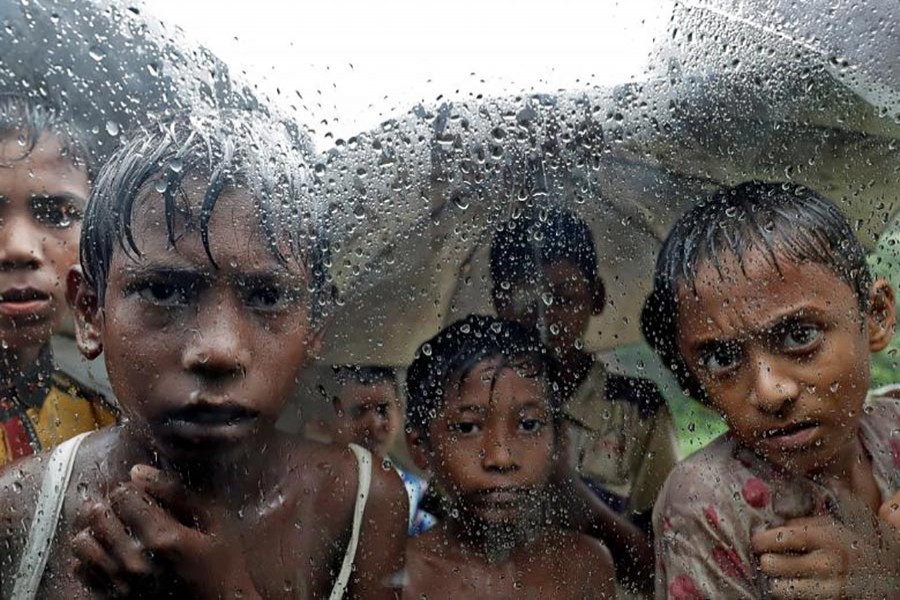Human Rights Watch (HRW) has called on Bangladesh to suspend the bilateral deal struck with Myanmar on Rohingya repatriation, saying it threatens the refugees' security and well-being.
The Myanmar authorities have shown no ability to ensure the safe, dignified, and voluntary return of Rohingya refugees as provided by international standards, it said on Tuesday.
"Rohingya refugees shouldn't be returned to camps guarded by the very same Burmese forces who forced them to flee massacres and gang rapes, and torched villages," news agency UNB quoted Brad Adams, Asia director of the global rights body, as saying.
"The repatriation plan appears to be a public relations ploy to hide the fact that Burma has not taken measures to ensure safe and sustainable returns."
The New-York-based organisation urged the two countries to renegotiate the repatriation agreement because of numerous flaws that endanger refugees' lives; the impossible timetable for voluntary, safe, and sustainable returns; and the failure to involve the UN refugee agency.
On January 16, Bangladesh and Myanmar announced an agreement that provides additional details on a plan that would repatriate over 0.77 million (770,000) mostly Rohingya Muslims who left Myanmar's Rakhine State since October 2016.
The majority fled a Burmese military campaign of ethnic cleansing that began in late August.
The plan, agreed in November 2017, would move returnees from processing centres to a hastily built "transit camp" before possible return to their home areas, where hundreds of villages have been burned to the ground.
Internally displaced Rohingya moved in the past to such "temporary" camps have lacked enough aid and have been unable to move freely while being denied other basic rights.
United Nations Secretary-General António Guterres told reporters on January 16 that the worst would be to move these people from camps in Bangladesh to camps in Myanmar keeping an artificial situation for a long time and not allowing for them to regain their normal lives.
The governments agreed to repatriate at least 300 refugees per day, five days per week. It has been widely reported that the process is expected to run for the next two years. Putting quotas and deadlines on refugee returns reinforces the risk of forced refugee return.
Since August, Human Rights Watch has interviewed more than 200 Rohingya refugees in Bangladesh.
Many said that they wish to go home but did not believe it was safe to return for the foreseeable future, or until their security, land, and livelihoods could be ensured.
The Myanmar government has systematically oppressed the Rohingya Muslim population and discriminated against them on rights including freedom of movement and access to citizenship, health care, education, and livelihoods.
The Myanmar government has a poor record for treating Rohingya displaced by past abuses or of providing sustainable conditions for their return. Over 120,000 Rohingya who fled ethnic cleansing in 2012 remain in supposedly "temporary" camps in central Rakhine State.
"All indications suggest the planned Burmese camps for Rohingya will be open-air prisons," Adams said. "There is little reason to believe the new camps will be any better than the 'temporary' camps where more than 120,000 Rohingya have languished for five years."
"Burma has largely refused to allow international involvement in addressing the Rohingya crisis," Adams said. "Instead of underwriting forced returns, donors should demand that Burma ensures international participation in any return plan."


